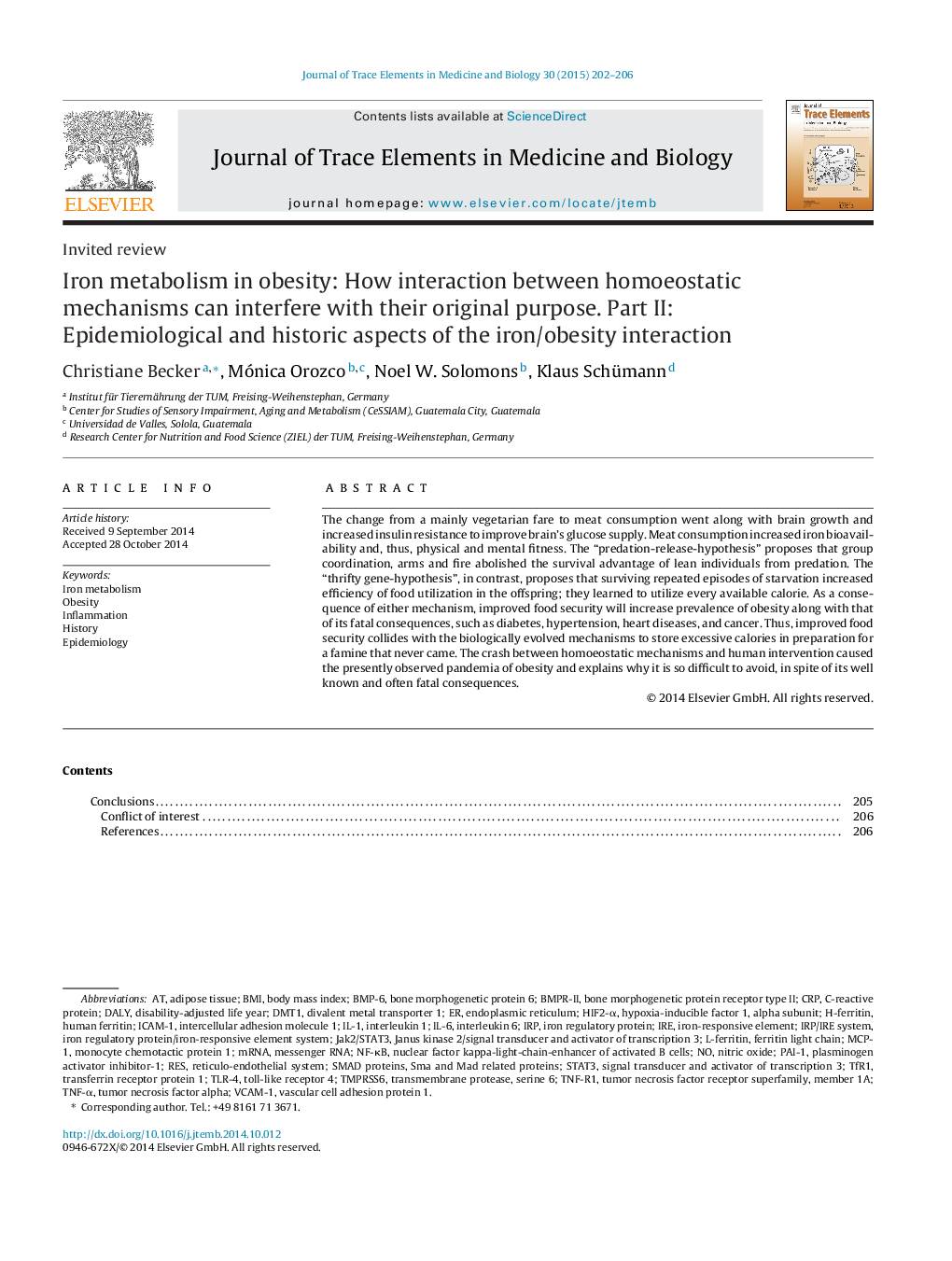| Article ID | Journal | Published Year | Pages | File Type |
|---|---|---|---|---|
| 1226342 | Journal of Trace Elements in Medicine and Biology | 2015 | 5 Pages |
The change from a mainly vegetarian fare to meat consumption went along with brain growth and increased insulin resistance to improve brain's glucose supply. Meat consumption increased iron bioavailability and, thus, physical and mental fitness. The “predation-release-hypothesis” proposes that group coordination, arms and fire abolished the survival advantage of lean individuals from predation. The “thrifty gene-hypothesis”, in contrast, proposes that surviving repeated episodes of starvation increased efficiency of food utilization in the offspring; they learned to utilize every available calorie. As a consequence of either mechanism, improved food security will increase prevalence of obesity along with that of its fatal consequences, such as diabetes, hypertension, heart diseases, and cancer. Thus, improved food security collides with the biologically evolved mechanisms to store excessive calories in preparation for a famine that never came. The crash between homoeostatic mechanisms and human intervention caused the presently observed pandemia of obesity and explains why it is so difficult to avoid, in spite of its well known and often fatal consequences.
